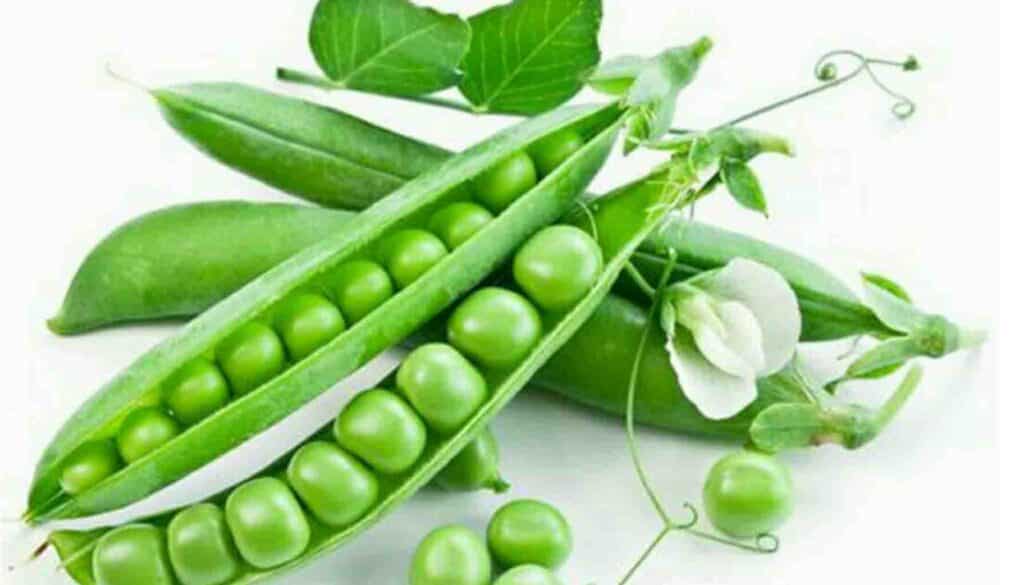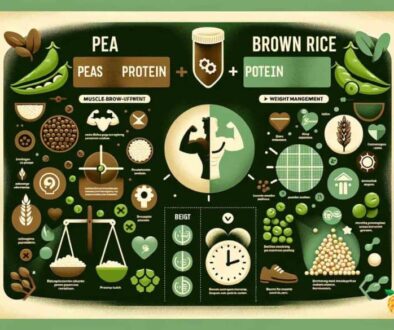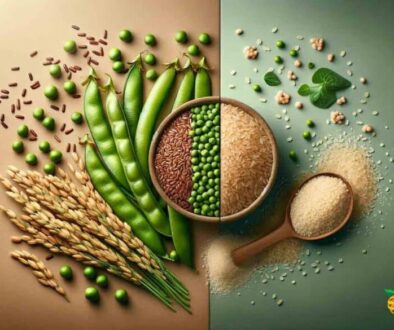Pea Protein: An Important Source of High-Quality Protein
Elevate health with high-quality pea protein—rich in essential amino acids. Discover benefits: antioxidant, anti-inflammatory, heart health. Boost nutrition naturally.
Understanding Pea Protein
Pea protein has emerged as a high-quality protein source in recent years, offering not only superior nutritional value but also characteristics such as low toxicity and low allergenicity. The isolation and purification of crude protein from yellow peas result in a protein with high content and fewer anti-nutritional factors, forming pea protein isolates. Enzymatic hydrolysis of yellow pea protein yields yellow pea peptides composed of various peptide molecules.
Yellow peas boast a high protein content (85%) containing all eight essential amino acids essential for the human body. Pea protein is a valuable protein source with the potential to replace soy protein and enhance the nutritional value of food.
Pea protein exhibits excellent solubility, making it easily absorbable by the human body. It is devoid of estrogenic hormones, making it a suitable option for diverse consumer groups without being a major allergen source. Pea protein or its hydrolyzed peptides contribute to significant health benefits, including antioxidant, blood pressure reduction, anti-inflammatory, cholesterol-lowering, and modulation of intestinal microbiota.
Nutritional Composition of Pea Protein
Pea protein constitutes 22% to 25% of the dry weight of peas, with albumin accounting for 18% to 25% and globulin for 55% to 65%. Albumin contains abundant tryptophan, lysine, methionine, and other sulfur-containing amino acids, while globulin is rich in arginine, phenylalanine, leucine, and isoleucine. Pea protein’s biological value (BV) ranges from 48% to 64%, and protein efficiency ratio (PER) ranges from 0.6 to 1.2, surpassing soy protein. Overall, pea protein’s amino acid composition is well-balanced, closely resembling the FAO/WHO recommended standard pattern, making it an excellent source of essential amino acids.
Research Progress in the Development and Utilization of Pea Protein
- Protein Source for Infants and Children’s Food
Studies by Francois et al. indicate that pea protein extracted from peas has the efficacy of reducing gastrointestinal flatulence and improving mineral bioavailability, making it particularly suitable as a protein source for infant food. Davidsson et al. reported that pea protein has low phytic acid content, minimal impact on iron absorption, and no allergic reactions, making it the optimal protein source in infant formula. Niehues et al. discovered that biologically active peptides isolated from yellow peas possess good anti-adhesive properties, serving as functional components to resist Helicobacter pylori infection in infants and children.
- Antioxidant Properties
Pea protein hydrolysates exhibit antioxidant properties. Pea protein hydrolysates and their isolated components possess the ability to inhibit linoleic acid oxidation, aiding in suppressing chronic diseases caused by cellular oxidation. Pea oligopeptides maintain strong antioxidant activity after digestion by gastric and pancreatic proteases.
- Antibacterial Properties
Experiments reveal that pea protein isolates’ papain hydrolysates have antibacterial effects on both Gram-negative and Gram-positive bacteria, indicating broad-spectrum antibacterial activity. Pea antibacterial peptides show a more pronounced effect on Gram-negative bacteria, particularly against Staphylococcus aureus.
- Promotion of Probiotic Growth
The impact of alkaline protease-hydrolyzed pea protein on the growth of 17 common probiotics was studied. Research confirms that pea protein hydrolysates significantly promote the growth and viability of probiotics, reducing their production time.
S’wiatecka et al. demonstrated that glycosylation of pea protein improves the intestinal environment, fostering the growth of beneficial bacteria, especially bifidobacteria and lactobacilli, leading to the production of more beneficial short-chain fatty acids (lactic acid, acetic acid, propionic acid, and butyric acid), contributing to gut health.
- Blood Pressure Reduction, Cholesterol Lowering, and Cardiovascular Disease Prevention
Samson et al. utilized pea protein for hydrolysis, obtaining angiotensin-converting enzyme (ACE) inhibitory peptides. Long-term consumption aids in treating hypertension without side effects, having no impact on normal blood pressure.
Research by John B. Lasekan indicates that compared to casein, pea protein more effectively lowers plasma cholesterol (61%), triglycerides (47%), and hepatic cholesterol (94%), while also reducing 27% of dietary cholesterol.
Huan Li et al.’s study suggests that due to the rich content of lysine and arginine in pea protein, hydrolyzing pea protein produces cationic peptides that effectively regulate Ca MKⅡ activity, contributing to cardiovascular disease prevention.
- Improvement of Immune Suppression
Studies by Fatou et al. reveal that hydrolysates of pea protein significantly inhibit nitric oxide production by macrophages, reaching levels as high as 20%. Mouse experiments by Zhang Minjia confirm that certain doses of pea peptides have a positive effect on improving immune function in cyclophosphamide-induced immunosuppressed mice.
- Alleviation of Insulin Resistance
Experiments by Cui Xinyue and others demonstrate that pea peptides have a certain alleviating effect on the formation of insulin resistance in liver cells.

Elevate Your Nutrition with ETprotein’s Premium Pea Protein
In the realm of superior nutrition, ETprotein stands out as a leading provider of high-quality pea protein. With a commitment to excellence, ETprotein’s pea protein offers a rich source of essential amino acids, contributing to various health benefits highlighted in the article. Harness the power of ETprotein to elevate your nutritional intake, promoting antioxidant support, anti-inflammatory properties, and heart health. Make a conscious choice for premium quality and optimal well-being with ETprotein’s pea protein.
In conclusion, pea protein has shown promising potential in various applications, ranging from infant nutrition to health promotion and disease prevention. Its nutritional richness, balanced amino acid profile, and functional properties make it a valuable ingredient in the food and pharmaceutical industries. Further research and development in pea protein utilization are likely to unveil more health benefits and applications in the future.














